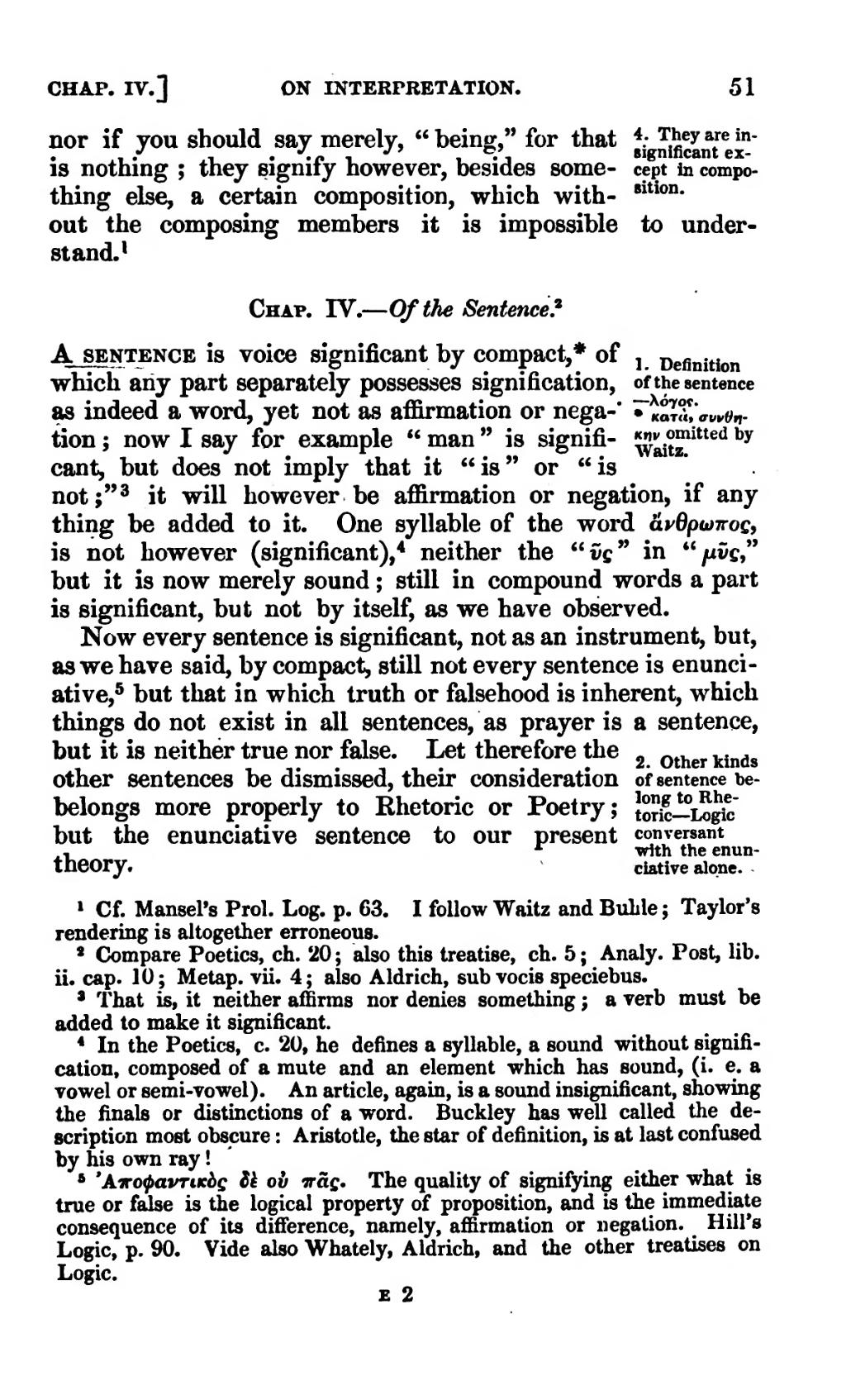nor if you should say merely, "being," for that is nothing; they signify however, besides something else, a certain composition, which without the composing members it is impossible to understand.
Chapter 4
A sentence is voice significant by compact, of which any part separately possesses signification, as indeed a word, yet not as affirmation or negation; now I say for example "man" is significant, but does not imply that it "is" or "is not;" it will however be affirmation or negation, if any thing be added to it. One syllable of the word ἄνθρωπος, is not however (significant), neither the "ῦς" in "μῦς," but it is now merely sound; still in compound words a part is significant, but not by itself, as we have observed.
Now every sentence is significant, not as an instrument, but, as we have said, by compact, still not every sentence is enunciative, but that in which truth or falsehood is inherent, which things do not exist in all sentences, as prayer is a sentence, but it is neither true nor false. Let therefore the other sentences be dismissed, their consideration belongs more properly to Rhetoric or Poetry; but the enunciative sentence to our present theory.

